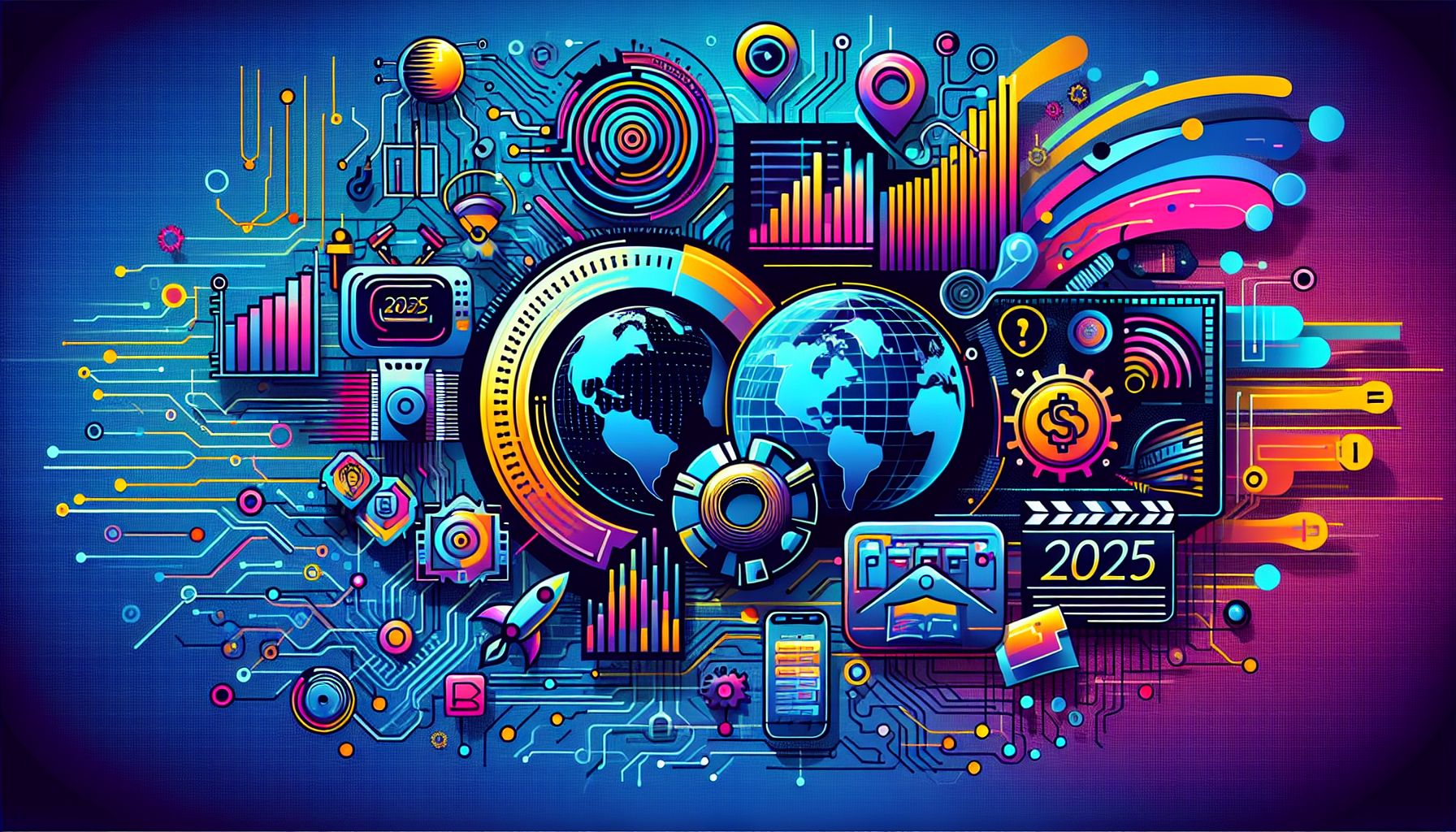Technological Advancements
Artificial Intelligence and Machine Learning
In 2025, artificial intelligence and machine learning remained at the forefront of technological advancements. Businesses and individuals alike increasingly relied on these cutting-edge technologies to optimize processes, enhance productivity, and deliver personalized experiences. From AI-driven customer service chatbots to intelligent personal assistants that learn and predict user behavior, the applications seemed limitless.
Blockchain Beyond Cryptocurrency
While Bitcoin and other cryptocurrencies still garnered attention, 2025 saw an explosion of interest in blockchain technology across various sectors. Industries ranging from healthcare to supply chain management started exploring blockchain’s potential to ensure transparency and security. Smart contracts, decentralized applications (DApps), and non-fungible tokens (NFTs) found practical utility beyond their original uses, significantly impacting business operations.
Healthcare Revolution
Healthcare providers capitalized on blockchain to improve data sharing and patient privacy. By securely storing patient records, blockchain eliminated redundancies and facilitated easier access to crucial medical information. The trend of telemedicine, enhanced by AI diagnostics, redefined patient-doctor interactions, ultimately making healthcare more accessible.
Supply Chain Transparency
In response to previous global crises disrupting supply chains, companies increasingly turned to blockchain for increased transparency. Traceability from production to delivery allowed businesses to ensure ethical sourcing and compliance, thereby enhancing consumer trust.
Health and Wellness Trends
Mental Health Awareness
The growing conversation surrounding mental health reached new heights in 2025. Following the impact of the global pandemic in the previous years, the emphasis on mental health awareness became more significant, with many turning to therapy apps for on-demand support. Society recognized the importance of discussing mental wellness openly, leading to a surge in resources and tools aimed at improving overall well-being.
Digital Mental Health Solutions
Mental health apps integrated AI to offer personalized coping strategies and connect users with licensed professionals. These solutions often included features like guided meditations, cognitive behavioral therapy exercises, and journaling prompts, making mental health resources more approachable and accessible.
Holistic Health Practices
2025 also marked a resurgence of holistic health practices. People increasingly turned to natural remedies, mindfulness, and alternative therapies, aiming for a balanced lifestyle. From yoga retreats to herbal medicine, individuals sought ways to improve not just their physical health, but their emotional and spiritual wellness as well.
Environmental Concerns
Climate Change Action
Climate change remained a predominant concern in 2025, prompting individuals and governments to take significant actions towards sustainability. The global youth climate movement continued to gain momentum, pushing for systemic change and demanding accountability from corporations and political leaders.
Green Technologies
Innovations in green technologies, such as solar energy advancements and electric vehicles, became more mainstream. Solar panels became more affordable and efficient, leading many households to invest in sustainable energy solutions. Electric vehicle sales skyrocketed, supported by government incentives and an expanding network of charging infrastructure.
Conservation Efforts
Conservation efforts gained traction, with initiatives focused on reforestation, ocean cleanup, and wildlife protection. Many communities actively participated in local conservation projects, helping to protect biodiversity and restore ecosystems. Social media campaigns raised awareness, encouraging individuals to engage in sustainable practices and reducing their carbon footprint.
Societal Changes
Work-Life Balance Shifts
The pandemic fundamentally changed how people viewed work, with many prioritizing flexibility and balance in 2025. Remote work became the norm for various industries, fostering new attitudes towards productivity and collaboration. Companies introduced hybrid work models, allowing employees to choose their work environment.
Digital Nomadism
The rise of remote work also led to a boom in digital nomadism. People who previously worked from a physical office opted to travel while continuing their jobs. This lifestyle shift encouraged the exploration of local cultures, communities, and experiences globally.
Social Justice Movements
Social justice movements continued to shape societal values in 2025. Issues like racial equality, gender rights, and LGBTQ+ representation were front and center, influencing everything from politics to corporate policies. Businesses adopted more inclusive practices, recognizing the importance of diversity for improved workplace culture and innovation.
Corporate Responsibility
Companies committed to social responsibility programs, focusing on community engagement, inclusivity, and ethical practices. This shift transformed consumer expectations, as individuals increasingly favored brands that actively engaged in advocacy and positive social change.
Entertainment and Cultural Trends
Streaming Dominance
The way audiences consumed media in 2025 continued to evolve. Streaming platforms gained a more significant foothold, with traditional television viewing declining. Services offered tailored recommendations powered by AI, ensuring viewers had access to content that aligned with their tastes.
Global Content Diversification
Increased accessibility of international content exposed audiences to diverse stories and cultures. This shift led to the rise of foreign films and series gaining popularity in regions not traditionally associated with them, enriching the overall entertainment landscape.
Virtual and Augmented Reality Experiences
Entertainment in 2025 increasingly ventured into virtual and augmented reality. Gaming experiences evolved beyond traditional setups, inviting users into immersive worlds where they could engage in interactive storytelling. Social platforms began integrating VR features, allowing users to meet and interact in fully realized virtual spaces.
Education Transformation
Online Learning Evolution
The education sector continued to adapt to the demands of a tech-centric world. Online learning platforms grew in sophistication, offering a blend of self-paced learning and interactive sessions supervised by educators. This flexibility appealed to learners of all ages, revolutionizing traditional classroom experiences.
Skill-Based Learning
With the ever-changing job market, a shift towards skill-based learning became apparent. Programs focusing on coding, digital marketing, and data analysis flourished, allowing individuals to upskill quickly in response to industry needs. Certifications from recognized platforms became valuable assets for job seekers.
Collaborative Learning Environments
Education 2025 emphasized collaborative learning. Social learning platforms connected learners worldwide, enabling the exchange of ideas and knowledge. These communities fostered a sense of belonging and encouraged diverse perspectives, enriching the educational experience.
